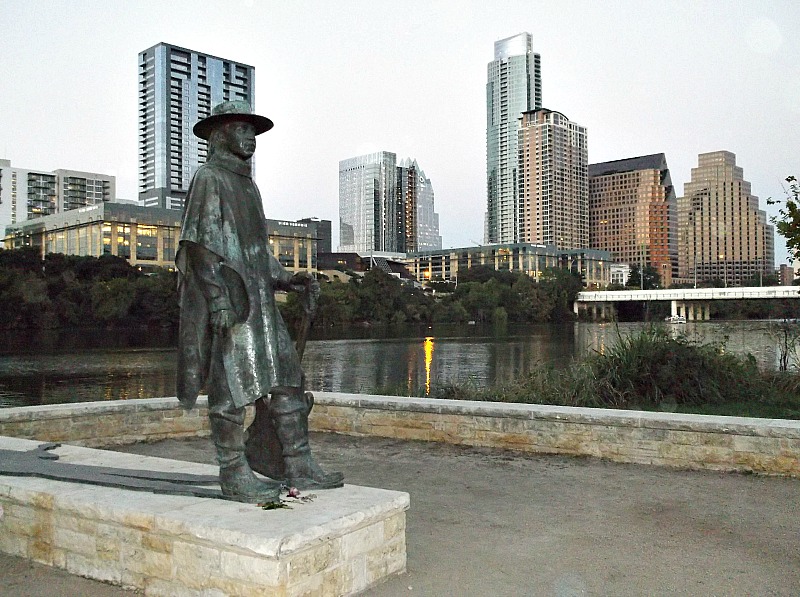Last week, Trulia published a blog claiming Austin to be the most overvalued market in America. If you read the report, Austin is the most overvalued market by far, which I believe is a huge exaggeration and manipulation of a small subset of data to push their agenda.
Overvalue: To assign an excessive or fictitious value to

What Metrics were Used to Label Austin the Most Overvalued Market in America?
Trulia says it “assess(es) whether home prices are overvalued or undervalued relative to their fundamental value by comparing prices today with historical prices, incomes and rents.” If you read further on a separate article that explains their methodology, they admit bubbles are difficult to predict and hard to confirm until after they’ve burst. They also admit they don’t have a metric that tells them whether price gains are justified. For a national real estate company to claim any city as the most overvalued city in America is speculation at best. Unless you have a deep knowledge of the economics and business climate of a city, it makes it pretty impossible to make this kind of claim – which is exactly what Trulia did.
What Trulia Didn’t Consider
Sure, the report looks at numbers, but doesn’t look at the reasons behind the numbers. When you consider all the facts, not just how prices have increased and how they compare to previous year’s sales, you’ll realize Trulia’s assessment of the Austin real estate market is incorrect. Trulia tells you as much in their explanation of how to spot a bubble.
Unemployment Rates Tell a Big Part of the Story
| Undervalued US Metros | Unemplmt Rate | Overvalued US Metros | Unemplmt Rate | |
|---|---|---|---|---|
| Dayton, OH | 7.5% | Austin, TX | 4.2% | |
| Cleveland, OH | 9.5% | Los Angeles, CA | 9.6% | |
| Detroit, MI | 17.7% | Orange County, CA | 5.7% | |
| Akron, OH | 6.3% | San Francisco, CA | 4.9% | |
| Lake County – Kenosha County, IL-WI | 6.7% | Riverside-San Bernardino, CA | 9.6% | |
| Toledo, OH | 7% | Honolulu, HI | 4.3% | |
| New Haven, CT | 9.8% | San Jose, CA | 6.6% | |
| Camden, NJ | 14.3% | Houston, TX | 5.6% | |
| Worcester, MA | 8% | Denver, CO | 5.4% | |
| Fairfield County, CT | 6.2% | Oakland, CA | 9.9% |
Unemployment rates are as of July 2014
Check out the unemployment rates of the cities on both the Top 10 Undervalued and Top 10 Overvalued Cities in America, which I might add, were not posted on Trulia’s article. A quick Google search and I was easily able to pull up the numbers for each list. Tell me, what do the most overvalued cities have in common (with LA, Oakland and Riverside being outliers)? A low unemployment rate. And, what do the most undervalued cities have in common? That’s right – high unemployment rates.
It seems to me, when buyers are afraid they might lose their jobs and not find another job, that puts the brakes on the housing market. Of course these real estate markets are going to look undervalued, because there are far fewer buyers in the market. Less demand and more supply lowers prices – economics 101. The opposite is true for real estate markets with thriving job markets. If home buyers aren’t afraid they will lose their job and not be able to find another one, they buy more house. When the city is full of confident employees, that creates a spark in the housing market. More demand and less supply increases prices.
Why Austin is Not in a Housing Bubble
The things Austin has going for it, don’t seem to be slowing down. Austin has grown into a large metropolitan area in a very short period of time. Though it’s had it’s growing pains, like outrageous traffic, that doesn’t seem to be slowing down the influx of people.
Austin Workers Have Jobs and Expect to in the Future
Not only does Austin have the lowest unemployment rate of any of the cities on the list at 4.2% (a full 2% lower than the US National Average), Austin was just named the second best city for future job growth, which gives employees confidence their lifestyles will remain intact. Austin is also very small business friendly and is attracting business – both small and large – in record numbers. I have heard story after story about people moving to Austin without a job and in less than a week, they are fully employed in the industry they specialize. These are people who didn’t know a soul and went about their job search in a traditional manner. This isn’t just one person, either. I hear these stories weekly. Thus, Austin employees are supremely confident that if they lose their job, another job is on the horizon. With rents on the rise, people who want to make Austin a permanent home are looking to become homeowners.
Austin is Still Fairly Affordable
Remember, a lot of people who are moving to Austin are from cities like New York, San Francisco and LA, where your basic house in a neighborhood with sidewalks are approaching $1 million, if not over. The median home price in Austin in September 2014 was $312,000. To someone who has lived in Austin for years, the median price is higher than it has ever been. But, to someone who has lived in some of the most expensive areas in the US, $312,000 is nothing. They can afford to live in a nice house and still have money leftover to travel and have a life. Buying a house for someone like that is a no brainer.
People are Moving to Austin in Record Numbers
It is estimated 170 people move to Austin per day, up from 150 people per day last year. It’s no secret Austin is one of the top places to live in the United States and though we have had some growing pains, it sure isn’t stopping the rapid growth we are experiencing. All of these people need a place to live. Rents are also seeing record jumps year to year, so that is usually not a cost effective solution for those who want to make Austin a permanent home.
The City of Austin Has Very Little Land Left to Build in Desirable Areas
I know what some of you are thinking. The 130 corridor is virtually undeveloped and there is plenty of land to build over there. You would be correct, however, no commercial facilities have made it out that way yet, making it difficult for someone to live out there and still feel connected to the city. In highly desirable areas like Downtown, near the Northwest job centers and South are virtually built out. There are no large tracts of land left to build. If you want to live in one of those places, you have to buy what is already there. With no new inventory (the closest new inventory located in the far north or south suburbs) and a desire to live in a more urban setting where restaurants, shopping and nightlife is within a short drive from a buyer’s house, a buyer is left with only what’s already been constructed. As demand for these areas increases, so will prices.
Austin is Experiencing a Lot of the Same Circumstances as Silicon Valley
I grew up in the heart of the Silicon Valley and practiced real estate there for a few years before we moved our business to Austin. My dad practiced real estate there since 1979 and can give you a first hand account of how the influx of jobs from the tech industry affected the real estate market. As home buyers drove prices up, economists would say – this has to end, housing is unaffordable for the majority of the population. The reality is, the jobs kept coming and the housing market in Silicon Valley is still going up. It has seen a few corrections over the years, but never a bubble burst.
Austin is in a similar situation in that we have jobs and no new land to build. Combine that with a higher quality of life, a temperate climate, low taxes and a convenient location in the middle of the country and you can see how Austin is poised for more growth. Growth (more people moving to the area than leaving) is something the Silicon Valley didn’t experience and is one of the reasons the Austin housing market will continue to soar.
Why Trulia is Motivated to Bash Austin
Recently, the Austin Board of Realtors was one of the few boards who decided not to syndicate it’s MLS data to sites that don’t uphold the sanctity of the data. Sites like Trulia and Zillow were not keeping up to date with updates pushed from MLS. Instead, they were using their site to list homes for sale that were not actually for sale or inaccurately display the current price and terms offered by a seller. They would sell advertising to Realtors to be the exclusive agent for an area and generate calls from buyers looking for those “secret homes” or great deals. The revenue these sites generated from selling ads to Realtors was basically turned off when Austin decided not to automatically push their MLS data. Trulia has since agreed to play by the rules and display accurate data, so ABoR is working on a deal to syndicate listings to Trulia once again. However, there were several months where they were in the dark and probably weren’t generating as much revenue from our market. Though they’ll never admit it, I am sure this is part of the reason Trulia is pushing their report to major news sites nationwide.
Trulia’s Job is to Get People Talking
As with all blogs and news outlets, they take positions that get people talking. And, to their credit, it worked. Their economists are all over the news media outlets doing interviews and sharing “facts”.
The Public Relies on the Wrong Sources to Interpret the Market
I may sound like I am on a soapbox – and I probably am. But, this type of article is so infuriating to me because the majority of the public relies on sources like Trulia and news media outlets to give them info about the state of the real estate market. None of these sources have a working knowledge of the Austin real estate market, but position themselves as experts. Even Trulia admits there is no way to predict a bubble, but do they tell viewers that on the nightly news? No. They tell viewers Austin is in a bubble – watch out!
How Can You Get Accurate Info About the Housing Market in Your Neighborhood?
First, check out our Austin Real Estate Price Reports where we analyze the single family home, condo, foreclosure and luxury housing market in Austin monthly. There we give you real data and share our experience of what we’re seeing as we work in this market daily.
Second, get real sales data for your neighborhood. Remember, all real estate is local. What’s going on in Austin isn’t the same as what’s going on in your neighborhood. Our Local Neighborhood Market Reports break down the market by neighborhood, tell you what sold and for how much. These reports show trends and statistics, so you can get a feel for the market in your area.
Finally, talk to an Austin Realtor (or a few Realtors) who actively work in the Austin real estate market and ask them. Don’t just take “oh the market’s great” as an answer. Ask them why the market is great, or not so great.
Only after you get accurate info about what’s going on in the market should you analyze your financial situation and decide what’s best for you.
Believe Austin is the Most Overvalued Market in America?
Don’t buy a home in Austin, then. Trust me, home buyers all over Austin will thank you. And so will investors who are looking to capitalize on Austin’s low vacancy rates and high (also rising) rents. In two years when you are proven wrong and our market is still going strong, you’ll wish you would have bought in 2014. Your friends who listened to the actual data, not the bogus report, will be 2 years closer to paying off their homes or ready to trade up with the equity they made.
Have a home to sell? Cash out. We have the best home marketing plan in Austin and can help you unload your home faster and for more money than any other Realtor in Austin. Check out our Austin Home Sellers program for more info. Then, call us at (512) 827-8323 or fill out our Seller Survey to schedule a no obligation consultation. We’ll speak honestly about the market and help you get your money in the bank.
Not Scared Off by the “Overvaluation” and Ready to Buy?
We can help! Our team has a combined 55+ years of experience in residential real estate and can help you get the best deal on a home you can. Check out our Austin Home Buyers section to learn more about who we are and how our program is uniquee. Then, call us at (512) 827-8323, fill out our Buyer Survey, or email us at info@11OaksRealty.com to schedule a no obligation consultation. We’ll speak honestly about the market, with facts and data, and help you decide whether or not now is the best time for you to buy.





Leave a Reply